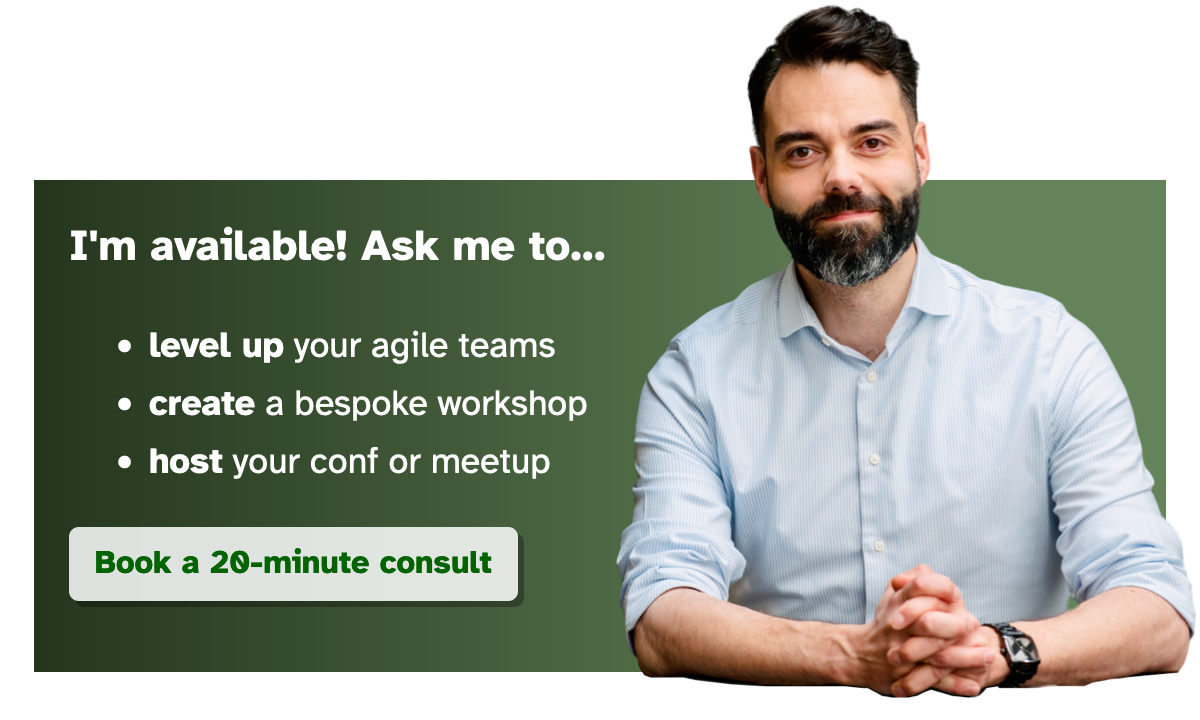📬 The Backlog #202
Improving meetings vs improving knowledge work, operating in platform teams vs working with project teams, and adopting multiplier mode vs sticking with maker mode.
- Elizabeth Ayer has eight great suggestions for shifting to a culture of meaning. Mentioning this takes us all the way to the end of her engaging article Meetings are the work, which starts with an acknowledgment of how dreadful ‘meeting culture’ is, before addressing the origins of knowledge work and knowledge, period.
I like that her article is more ambitious than just arguing about what meetings are or are not (symptom), and instead aims to skew the systemic view of work and value (causal context) in order to reframe meetings.
Ayer puts it better: “The tech industry suffers from a deep association of work with individual productive toil, and that just isn’t what knowledge work is. In addition to being social, knowledge work is also uncertain and messy. Moreover, it’s hard to make knowledge production happen reliably. There are better and worse ways, but in general, meaning-making argues with agendas and likes to break through timeboxes.” -
Gergely Orosz celebrates a staggering subscriber milestone to The Pragmatic Engineer by making his first paywalled article from a couple of years ago, publicly accessible.
Orosz’s The Platform and Program Split at Uber is still a cool, honest account of his experiences with the origins and effects of an org change leading to platform teams.
Those are teams that don’t work cross-functionally on end-to-end value, but handle specialised, highly technical stuff that other teams can use. Orosz: “Platform teams own non-functional requirements like the reliability of systems, the ability to handle more load, or the ability to support more products, in a way that satisfies non-functional constraints.”
I do a lot of thinking (and working) with team divisions and collaboration - are we a feature team, a product team, a component team, or something else, and why? Operating as a platform team, in the way that Orosz outlines, may be something to look into for ‘data’ teams, too. Not quite embedded, not quite just a ‘request desk’ for other teams, but enabling and steering a specialised platform. -
Patrick Kua puts labels on two ‘modes’ of being, like longer-term stances, that may serve you differently in different stages of your career. It’s good to be aware of which one you are, or could, be employing, to be effective. Are you being effective by building a thing or by enabling others to do so?
To paraphrase a popular statement, the thing that brought you here may not be what will bring you further.
Maker vs Multiplier, Kua’s 2020 article on the subject, is written for (first-time) technical managers, but the concept of those two modes is broadly applicable. Actually, the way Kua describes it, being in ‘multiplier’ mode is not beholden to anyone with a formal management title - it’s more like leadership and thus situational.
Kua’s article is straightforward and helps (first-time) institutional leaders literally question their stance and effectiveness. Try it yourself, too.
I wish you a week filled with awareness of choice,
Scrum on,
Thomas van Zuijlen
